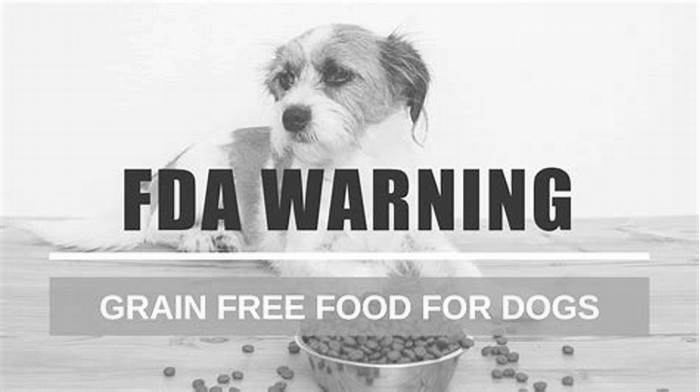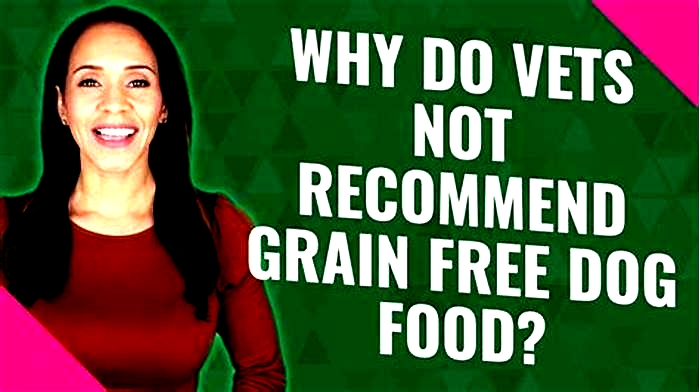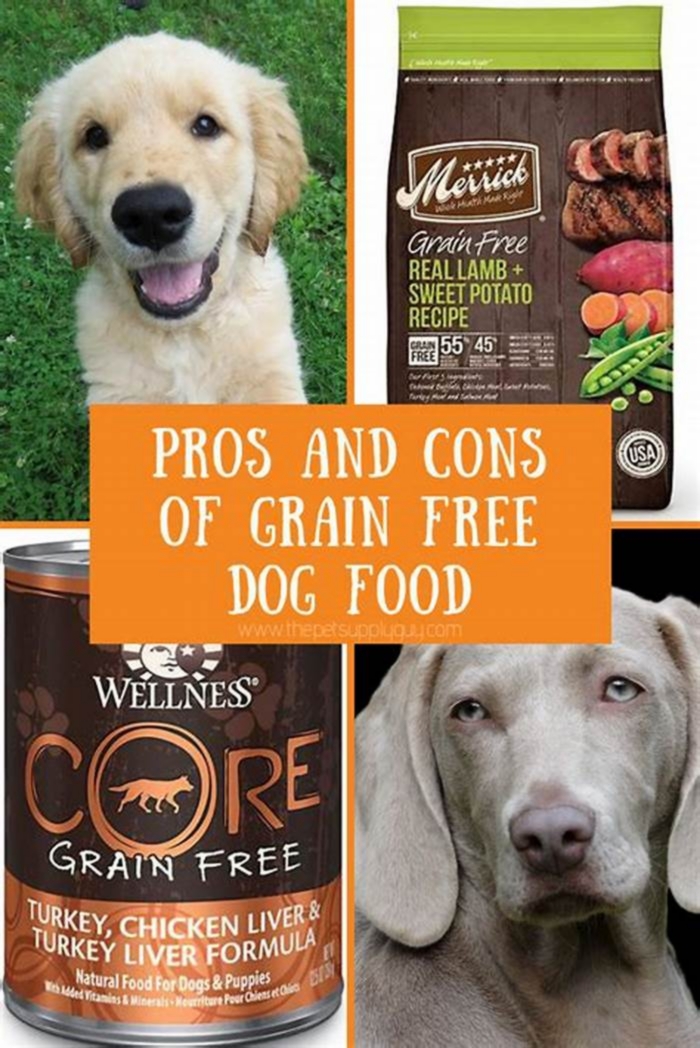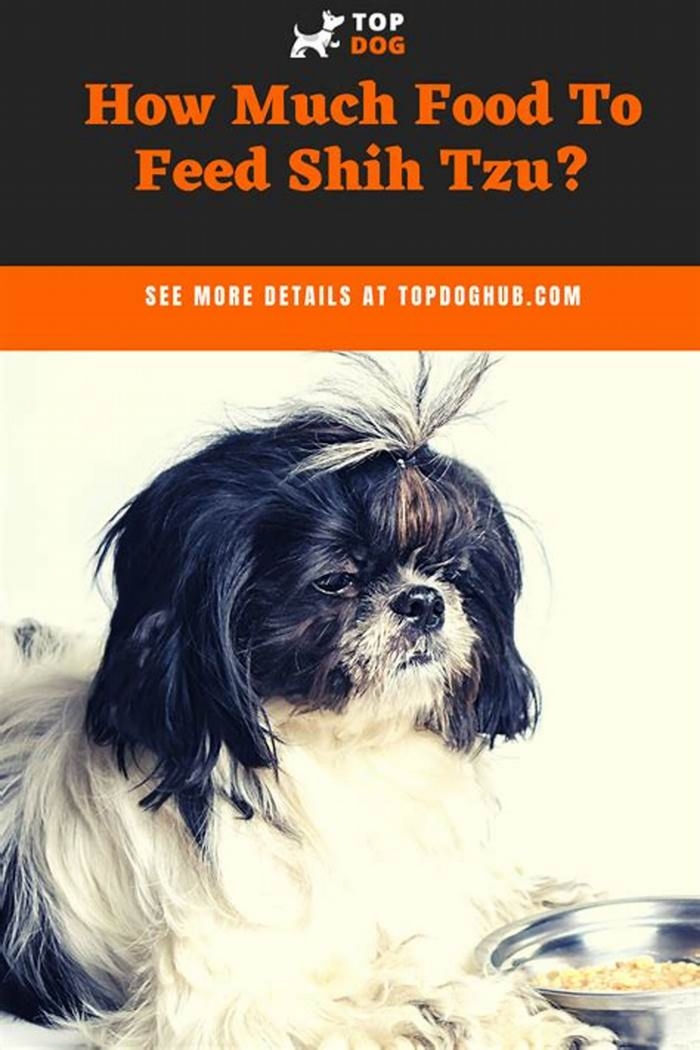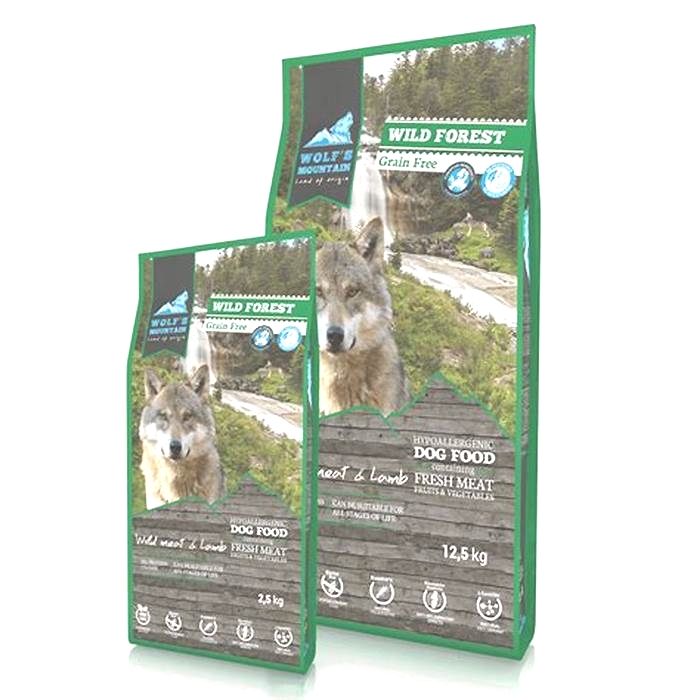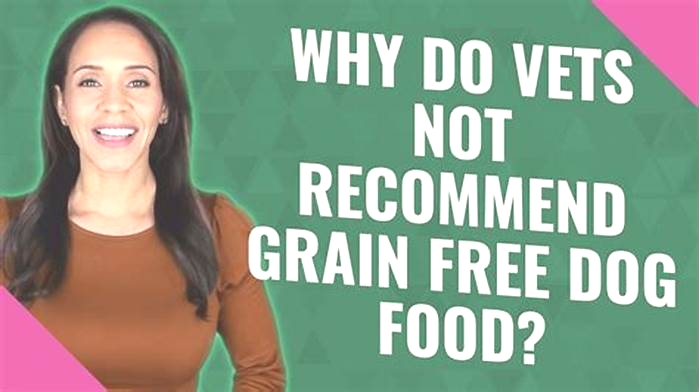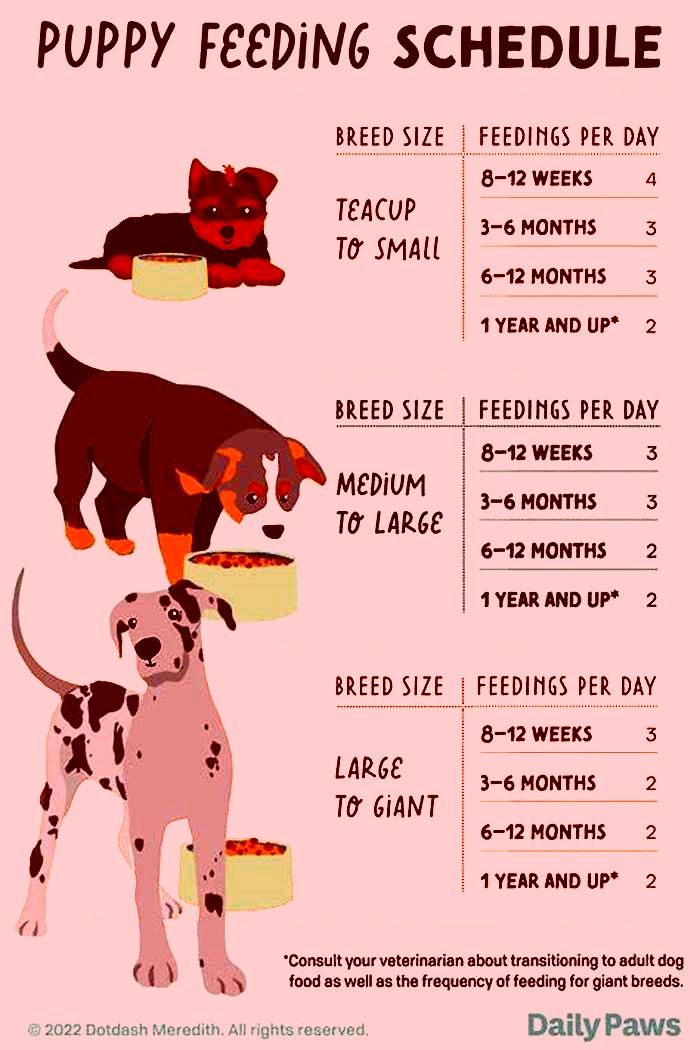Should I feed my dog grain free or not
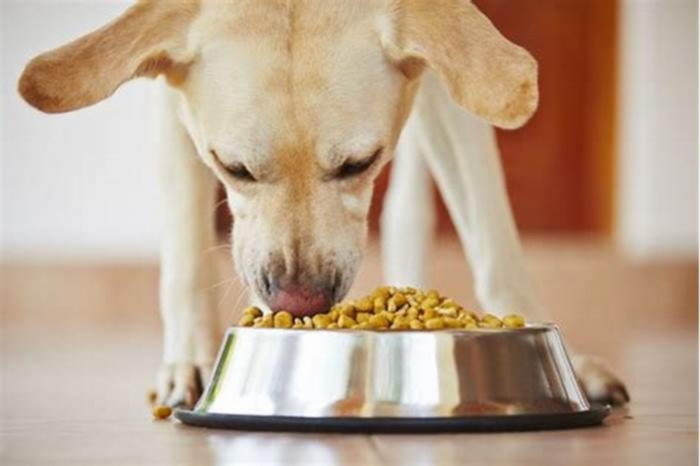
Deciding what to feed your pet can be a daunting task. Americans now spend over $31 billion each year on pet food and there are dozens of different companies, each having a variety of diets to choose from. Most pet food companies are experts at advertising and quick to promote trendy diets, even if they may not be the best food for your pet. It has recently come to light that this may be the case for grain-free or BEG (boutique, exotic, grain-free) diets for dogs.
Whats the Cause for Concern?
Over the past couple of years, veterinary cardiologists noticed an increase in the number of dogs they saw who had dilated cardiomyopathy (DCM), a heart condition that decreases the hearts ability to pump blood. There are some dog breeds that are more likely to develop DCM, but the cardiologists were diagnosing the condition in breeds without a known genetic predisposition, so the Federal Drug Administration (FDA) began an investigation.
What Did the FDA Find?
TheFDAreceived 515 reports of DCM in dogs between January 1, 2014, and April 30, 2019. When they looked into what these dogs were eating, they found that 90% were on a grain-free food and 93% were on diets that contained peas and/or lentils. The foods were tested for minerals, metals and amino acids and no significant abnormalities were found.
What Does This All Mean?
A relationship between grain-free diets and the development of DCM hasnt been fully proven. However, there are numerous reports of dogs with DCM whose condition improved or completely resolved after they were taken off a BEG diet and started on a special amino acid supplementation (Taurine). The short answer is, we still dont know why this is happening, but it appears that DCM is more likely to occur in dogs who are only eating BEG diets.
What Should You Do if Your Dog Is on a Grain-Free Diet?
If your dog eats a BEG diet, they should be closely monitored for any signs of heart disease by your veterinarian or even a veterinary cardiologist. If your dog has a food allergy, there are alternatives to grain-free diets and exotic ingredients that have no known health risks.
How Should You Select a Food for Your Pet?
When selecting a diet for your pet, the best advice is to ask your veterinarian. Veterinarians receive training in animal nutrition while in school and at educational conferences throughout their career; they are much better suited to advise you about proper diets than a pet store employee. It is worth noting that there have been no reported cases of dogs developing nutritionally mediated DCM while eating a food that meets theWorld Small Animal Veterinary Association (WSAVA) guidelines, so that is a good place to start.
Are Grain-Free Diets Bad for Dogs?
What Is Grain-Free Food?
Most of us are familiar with wheat, rice, corn, and barley since these are part of our usual diet. We think of them as carbohydrates or carbs. Whole grains contain protein, fiber, vitamins, and minerals, which makes them healthy both for us and for our dogs.
About 20 years ago, as veterinarians were seeking better diets for dogs with food allergies, nutrition companies conducted AAFCO (Association of American Feed Control Officials) food trials to determine the safety of hypoallergenic diets, some of which were grain-free. These diets have been fed safely to dogs and cats since that time.
Starting about 2005 there was a rise in marketing by pet food companies that promoted grain-free diets as healthier for dogs with health issues or allergies, or because grain-free diets had fewer fillers.
The word filler itself is misleading, as filler is defined as an ingredient that adds bulk to the food but no nutritional value to the pet (i.e. it is not digested). However, fillers added to pet foods are typically in the form of fiber, which feed intestinal bacteria and produce the short chain fatty acids that keep the intestinal tract healthy. Without fiber/fillers, the pet food would not be complete and balanced.
Pet parents clearly want the best for their dogs. The information most readily available to pet parents online and pet stores at this time suggested that grain-free diets were healthy, even if veterinarians were not always on board.
Is Grain-Free Food Linked to Health Conditions in Dogs?
Dilated cardiomyopathy (DCM) is a breed-related disorder causing dilation and thinning of the chambers of the heart. This can lead to heart failure, arrhythmias, and sudden death. The breeds most commonly affected are theDoberman Pinscher, Golden Retriever, Great Dane, Boxer, andCocker Spaniel.
In 2018, the FDA began receiving reports of dog breeds with DCM that typically do not develop this disease. The common factor among these dogs was they all were eating grain-free or boutique (uncommon) diets. Once they were placed on a diet with grains, the dogs slowly recovered.
Seventeen peer-reviewed studies over the last 4 years have been published, with 1,382 dog cases and 20 cat cases (as of Dec. 23, 2022) reported to the FDA. The case numbers are also believed to be underreported, as the pets need a workup by a cardiologist and the FDA reporting process can be difficult. The original theory that this could be a taurine deficiency in these diets, which had been seen in rare cases, has proven to be more complex.
One study in 2018 found taurine deficiency only in Golden Retrievers eating a grain-free diet. However, future studies could not find taurine deficiency in any breed, including the Golden Retriever. There does appear to be an association between pulses (part of the legume family, including peas, lentils, and chickpeas) being high in the ingredient list in the reported cases.
There are no other major health issues associated with grain-free diets outside of DCM. Dogs given over-the-counter diets for food allergies may continue to experience itching, vomiting, or diarrhea if the diet was not made in a facility specifically dedicated or cleaned to prevent cross-contamination of proteins for food-allergic pets.
Why Would Dogs Be Recommended Grain-Free Food?
Celiac disease, a disease of gluten intolerance that is very common in people, is very rare in dogs. There is a line of Irish Setters in the United Kingdom that have gluten intolerance, similar to celiac disease. Some Border Terriers have epileptoid cramping syndrome, which is relieved by a gluten-free diet. These are the only known dogs with gluten-responsive medical issues.
Dogs with food allergies may benefit from a limited ingredient diet or hydrolyzed diet, and some of these diets are grain-free. Therapeutic prescription hypoallergenic diets, which have gone through AAFCO or more advanced feeding trials, have not had reports of dogs developing DCM to date. These are the diets that veterinarians recommend, not just because of the DCM issue.
Prescription hypoallergenic diets are made under rigorous protocols to prevent cross-contamination of ingredients, as well as testing for any rogue ingredients. Dogs are much less likely to have flare-ups of allergies or gastrointestinal issues because of these strict protocols. While the prescription diets are expensive, pet parents may ultimately save money on veterinary bills due to fewer relapses of their pets signs.
Should I Feed My Dog Grain-Free Food?
If you are considering a grain-free diet for certain reasons, including that your pup wont eat their regular diet, is constantly itchy, or has a sensitive stomach, the first step is to seek veterinary advice.
A medical issue may need to be addresssed in addition to the one you think is already happening. Also, your vet may recommend a different diet based on your dogs age or overall health, based on clinical signs.
Featured Image: iStock/VYCHEGZHANINA
References
Sanderson, SL. Pros and Cons of Commercial Pet Foods (Including Grain/Grain Free) for Dogs and Cats. Veterinary Clinics of North America: Small Animal Practice. 2021 May;51(3):529-550.
Freeman, L. Diet-associated dilated cardiomyopathy: The cause is not yet known but it hasnt gone away. Clinical Nutrition Service, Cummings School of Veterinary Medicine, Tufts University. February 2023. Ibid.
Questions & Answers: FDAs Work on Potential Causes of Non-Hereditary DCM in Dogs. US Food and Drug Administration. December 2022.
WRITTEN BY
Jennifer S. Fryer, DVMVeterinarian
Jennifer S. Fryer, DVM graduated with Honors from Brown University with an AB in Development Studies, an interdisciplinary study of the...
The Truth About Grain-Free Dog Food: Insights from a Nutrition Expert
The phrase grain-free has become one of the most confusing and debated in the world of dog food in recent years. It was and is often seen as a positive many nutritionists warn against high levels of grains in dog food.
However, in recent years, a growing concern has emerged regarding the potential connection between canine dilated cardiomyopathy (DCM) and dogs diets with grain-free foods framed by some as the problem.
As a result, pet parents, believing they are offering their furry companions the best nutrition, find themselves troubled by the notion that their diet could be linked to such a serious disease.
While DCM has various causes, including genetics, medications, and infections, its crucial to note theres no scientific evidence definitively linking grain-free or grain-inclusive diets to DCM.
This, however, has not eased the concern or confusion among many pet parents. Not least because people confuse food advertised as grain-free which often has grain substitutes with food that simply has no grains in it, such as raw dog food.To address the uncertainties around foods labelled grain-free, we spoke Dr. Richard Patton, a seasoned Ph.D. animal nutritionist with over 40 years of experience and expertise in formulating canine diets, more than 25 scientific publications to his name, and who has authored a book on pet nutrition. Hes a nutritional consultant for the raw food community.
(Please note that these are Dr. Pattons expert opinions, not those of Dog Food Advisor.)
In the popular language of the pet food industry, grain-free trade signifies the absence of ingredients like corn, oats, wheat, soybeans, and the like. This labelling suggests the replacement of these perceived problematic grains with supposedly more benign options such as potatoes, sweet potatoes, or other non-grain alternatives.
However, the crux of the issue isnt the specific grains name but rather the quantity of soluble carbohydrates it contains essentially, starch and sugar. Potatoes, often deemed virtuous replacements for grains, can be just as carbohydrate-rich and, therefore, pose similar concerns as grains like corn. Similarly, a diet featuring lower levels of soluble carbohydrates can still be highly nutritious, even if it includes moderate amounts of grains.
How do I know if my dog should be grain-free?
Your dog should generally be fed a diet that is low in starch and sugar. Their diet should be low in soluble carbohydrates its usually easiest to feed your dog complete and balanced meat-based dog food.
Apart from honey, there are very few natural sources of food that are high in carbohydrates. If we were to survive in the wild, we would find many things to eat, but very few carbohydrates. Mankind made them easy to find, but a high-carb diet is ill-suited for our genetic machinery.
Should pet parents avoid grain-free food?
The thing to avoid is a high-carb diet. The pet food industry is dominated by brands that make crunchy kibble on a machine called an extruder. To properly run an extruder requires a fair measure of starch due to its inherent qualities. It expands when heated with water; it stays expanded when cooled and dried.
The pet food industry is a behemoth, with a dog or cat for every other person in the country. Big kibble has coerced the market into thinking kibble is the way to go. In fact, a pet parents buying decision is guided by three things: cost, convenience, and correct nutrition. Its hard to have all three. Big kibble trades on its strength in cost and convenience.
Are there different types of grain-free dog food?
There are different ingredients one can replace corn, oats, wheat, etc. with. However, if its a crunchy kibble, it will contain excess carbohydrates.
What are the benefits of grain-free dog food?
Given that both with grain and grain-free can be equally dubious due to high starch content, the benefits are confined to economics and convenience.
What are the disadvantages of grain-free dog food?
A grain-free kibble will be high in starch and deliver excess carbohydrates, the same as regular grain kibble. Everyone thinks fat causes obesity. This is incorrect. Excess carbohydrates cause obesity.
Does grain-free dog food cause heart disease (DCM, enlarged heart or dilated cardiomyopathy)?
There is no credible scientific evidence for this, let alone proof. If there is a link between diet and DCM in dogs, it is far more likely to be a matter of protein quality, amount and specific amino acid amount.
Is grain good for dogs?
Grain can be fed to dogs if fed in moderation. A primordial diet is 5-7% carbohydrate, and this is the dietary level mammals are genetically evolved to consume, and thrive on best.
Is grain-free food the same as gluten-free/wheat-free dog food?
If grain-free means the diet is free of wheat, rye, barley and oats, then the diet can be considered gluten-free. There are pet food kibbles in the market that snub these specific cereal grains.
If you or your pet has a gluten intolerance, you readily grasp the relevance of this issue. Gluten intolerance is a genetic inability to digest the gliadin fraction of the wheat protein gluten. Gluten is also found in the protein of rye and to a smaller extent in barley and oats. So no, grain-free does not speak to gluten-free specifically, but often a grain-free diet can be gluten-free as well.
Can puppies eat grain-free food?
Talking about grain-free dry kibble, yes, of course, they can eat it, and given that puppies chew on anything, they will appear to relish it. The excess carbohydrates in some foods are just as bad for puppies as adults. Puppy food should derive its calories from protein and fat, not from carbohydrates.
What is the best grain-free dog food?
The question should be what is the best type of food? Regarding grain-free kibble, one can assume the various competing products all comply with AAFCOs recommended guidelines for nutrient content.
In this regard, it is not easy to identify one superior brand among dry kibbles. However, pending AAFCO changes will call for labels to state not just total calories but what percentage of these total calories derives from protein, fat and carbs. This will greatly inform pet parents buying decisions and advance awareness that low-carb diets are best.
For example, a grain-free dry kibble with 30% carbohydrate calories is better than one that is 40 or 50%. Under current label rules, this way of evaluating and ranking is not possible. When it does become the norm, it will show that natural and natural raw diets at 5-10% calories from carbohydrates are the best.
Is grain-free food better for allergies?
If a pet is indeed allergic to one of the grains shunned in grain-free formulas (viz., corn, oats, wheat, soy, barley, rice) a grain-free kibble could lessen symptoms. There was an all-meat-type pet food producer who guaranteed his meat-based product would clear any skin problem or your money back. In 30 years he never refunded a cent. Often, a dogs food sensitivity is not to a specific ingredient but to a diets overall carbohydrate analysis. Lowering starch and sugar in a diet often lessens allergic symptoms.


